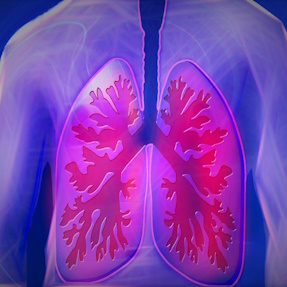
Smart strategies maximizing lung health
Good lung health ranks high alongside other vital organs such as heart and brain health. Yet, how often do you think about what it takes to keep your lungs healthy and functioning properly? As a part of the respiratory system, your ability to breathe easily begins and ends with robust lung health. In addition, body cells rely on obtaining oxygen from the lungs to live. But if or when lung function diminishes, suddenly you’re vulnerable to serious infections affecting this vital organ necessary for living an active lifestyle.
Best strategies for keeping your lungs young
Nobody wants to experience a decline in lung function. However, with age, diminished lung health can happen. Smoking, emphysema, asthma, or having many bouts of chronic bronchitis can accelerate your lung health.
Good lung health begins with living a healthy lifestyle. By choosing healthy habits daily, you will be helping preserve your precious lung health. Most doable strategies make a big difference between healthy lungs and sickly lungs.
Stop smoking
Smoking significantly increases your risk of infections and lung cancer. Even if you are a nonsmoker, frequent exposure to someone who smokes, means breathing in secondhand smoke that can seriously affect your lung health. Anyone who smokes should begin with their doctor on planning how to quit. Don’t give up. It’s well worth the effort to save your lung health for the long term.
Avoid pollution exposure
Breathing in environmental toxins, such as smoke from fires, secondhand smoke, or pollution, causes your lungs to secrete mucus that traps the toxins. You will struggle to breathe as your lungs struggle to produce more mucus. Sometimes you may not be able to avoid environmental toxins completely. In these situations, wear an N95 mask as simply breathing in warm, humidified air will help you breathe more easily. People with asthma or allergies will also benefit from wearing a mask when exposed to these toxins.
Exercise
Achieving good lung health is possible, and it begins with taking deep breaths through moderate-to-intense exercise. A brisk walk, jumping rope, or swimming are moderate-intensity physical activities requiring breathing deeply. Deep breaths help open up all areas of the lungs that clear out lung secretions that have accumulated. By eliminating these secretions, you’re removing prime areas where inhaled viruses or bacteria like to reproduce and grow, leading to serious lung infections.
Maintain a healthy body weight
Weight gain is not a friend to lung health. Excess pounds strain the muscles that move your lungs, especially the diaphragm, required for expanding the lungs as you breathe. Those who carry weight in their abdominal region will particularly notice this since it will impair the downward motion of the diaphragm’s movement.
Practice deep breathing
Daily, have a plan to do deep breathing exercises. Deep breathing helps expand your lungs, eliminating secretions, and reducing your heart rate and blood pressure. Begin deep breathing by either sitting or lying down comfortably. Next, breathe slowly and deeply through your nose, keeping your shoulders still and allowing the abdomen to expand outward. Upon exhaling, do so through your nose or mouth as you relax the abdomen. Work up to a total of 30 minutes throughout the day.
- Avoid sitting for long stretches
Frequent sitting is never a good thing. Surprisingly, this is true for good lung health. Simply breaking periods of sitting by changing your position helps get air circulating to all regions of your lungs, clearing out mucus. Every 30 minutes, get up, walk around, do deep knee bends, stretch side-to-side, anything that changes your position and gets you breathing in more deeply.
